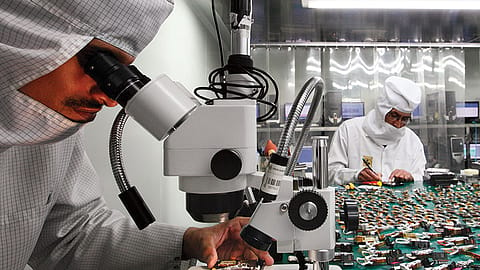Engineers most sought after in Indian job market: report
India Skills Report 2020 sends out important and mixed signals regarding employability in India.

If you are an engineer with one to five years of job experience, you are most likely to be hired for a job in India in 2020, according to a new study—India Skills Report 2020: Reimagining India’s talent landscape for a $5 trillion economy—released on Tuesday.
The report by online talent management firm Wheebox and the Confederation of Indian Industry (CII), says that nearly 40% of employers across a wide range of industries including auto, auto components, and information technology want engineers on their rolls. This demand for engineers is expected to grow by almost 10 % next year.
Graduates with a degree in computer science, business administration, commerce, and science are next in line. The demand for these skills will come from pharmaceutical, business and knowledge process outsourcing, and industries expected to ramp up their hiring the most, like e-commerce and banking and financial services.
“Leaders in the e-commerce sector expect hiring to swing up by around 55-60%, while an uptrend of 30-35% is expected by leaders in the BFSI sector,’’ says the report. There has also been an increase in demand for MBA and post-graduate students as compared to the previous year.
However, the news is not so good for students at the Industrial Training Institute (ITI) and polytechnics, or for the freshly-minted graduates. For ITI graduates the going is getting tough because in the knowledge-driven and tech-enabled workplace, repetitive and low-skilled jobs are increasingly being automated using technologies like robotics, artificial intelligence, and machine learning.
The key emerging digital technologies are creating new arrangements for the labour market called the ‘gig economy’. The gig-based work model has different boundaries in terms of short, flexible, part-time work. All these changes certainly pose an increased threat of workforce replacement.
New graduates form only about 15% of the demand pool. This can be attributed to the fact that industries are increasingly adopting new technologies and transforming their operations and are thus looking for professionals with a few years of experience. Those with 10 to 16 years of experience are high in demand, says the report which reached out to 3,000 students across 28 states, nine union territories, and 150 employers for their comments.
Recommended Stories
However, for those in demand, they need to have a few qualities before they are inducted into any company, irrespective of the sector they represent, says the report. These include having a positive attitude, domain knowledge, adaptability, and interpersonal skills. Employees will also need to get certain emerging skills in the next five years like data science and analysis, digital marketing, human-centered design, robotics process automation (RPA), and compliance.
Data analysis skills were found to be the most important by employers from automotive and core—oil & gas, power, steel, manufacturing, and e-commerce sectors. Similarly, human-centered design found a lot of emphasis from manufacturing, pharmaceuticals, and IT sectors. Even those with an experience in RPA, have a lot of takers from various industries.
About 56% of the Industry employers in the survey, reported a positive outlook on hiring and about 28% maintained the status quo. The figures, however, fell compared to 2019, where 64% of respondents had reflected a positive intent while 25% of respondents mentioned they do not intend to increase to decrease their hiring state. The decline is largely attributed to the slowdown in various industries across the economy. For example, the automobile industry witnessed a dip in sales and production, the growth of the manufacturing sector has been sluggish, and banking and non-banking entities faced heat with an increase in disclosures of non-performing assets.
The report is categorical that Increasing globalisation, demographic changes, emerging technologies, regulatory framework, and geopolitical scenario will significantly influence India’s job landscape in the coming years. In addition, the rapidly changing technology environment is reshaping entire organisational structures and operations. It has led to the rise of new business models disrupting incumbents, altering customer behaviour, reforming service delivery methods and operations, and most importantly, changing operations.
(INR CR)